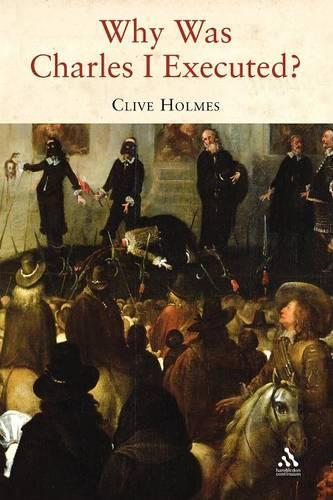
Why Was Charles I Executed
(Paperback)
Available Formats
Publishing Details
Why Was Charles I Executed
By (Author) Dr Clive Holmes
Bloomsbury Publishing PLC
Hambledon Continuum
1st June 2007
United Kingdom
Classifications
General
Non Fiction
942.062
Physical Properties
Paperback
262
Width 156mm, Height 234mm
414g
Description
The execution of Charles I in 1649, followed by the proclamation of a Commonwealth, was an extraordinary political event. It followed a bitter Civil War between parliament and the king, and their abject failure to negotiate a peace settlement.
Why the king was defeated and executed has long been a central question in English history. The old answers, whether those of the historian S R Gardiner or of Lawrence Stone, no longer satisfy. Clive Holmes supplies clear answers to eight key questions about the period, ranging from why the king had to summon the Long Parliament to whether there was in fact an English Revolution at all.
Reviews
"This book will certainly not end the debate but it will help its participants to clarify their thoughts and views." Contemporary Review
"Holmes provides thorough, thoughtful, and learned answers to the questions he poses. He has researched widely and deeply. He is at his best when he brings his special expertise in local history to bear on larger questions...Throughout the book, Holmes effectively demonstrates that godly zeal and political radicalism might prevail for a day, but in the long run they were no match for the inertia of tradition and entrenched interests." Michael B. Young, The Historian, Vol. 70, No. 1 -- Michael B. Young
Mentioned in Contemporary Review, 2007.
"An intelligent encounter with a living past." - English Historical Review
Author Bio
Clive Holmes is a leading English Civil War Historian and Fellow of Lady Margaret Hall, Oxford.
